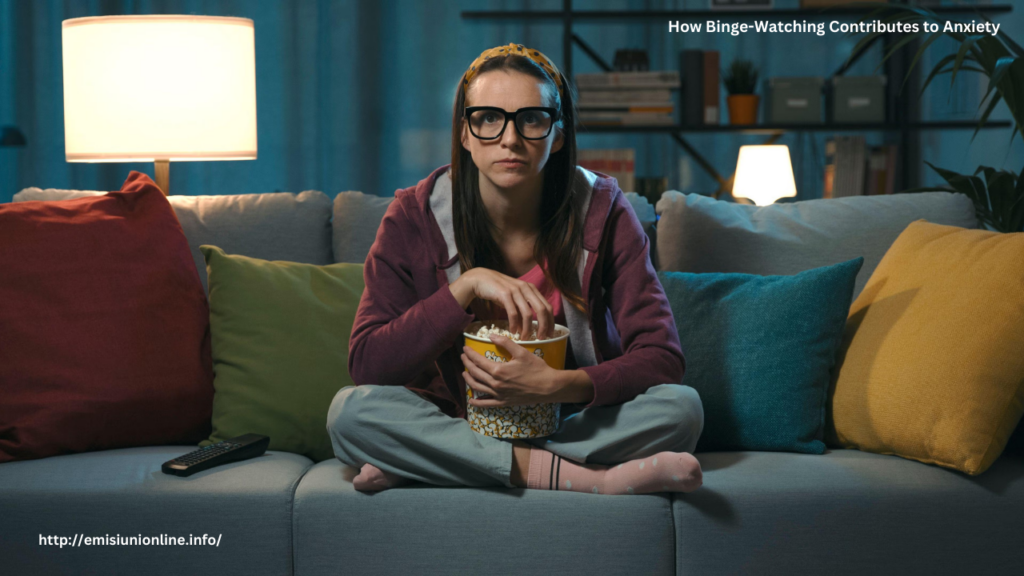Binge-Watching and Anxiety: Is Too Much TV Harming Your Mind?
posted by: Guest
No Comments »

With the rise of streaming services, binge-watching has become a common habit for millions of people. Watching multiple episodes of a TV show in one sitting can be entertaining and even feel rewarding. However, excessive binge-watching has been linked to negative mental health effects, including increased anxiety and stress. While occasional indulgence isn’t necessarily harmful, making it a routine can take a serious toll on your mind.
The Appeal of Binge-Watching
Binge-watching offers an easy escape from daily stress. After a long day, settling in with your favorite show can be a comforting ritual. Engaging storylines, cliffhangers, and autoplay features make it tempting to watch “just one more episode,” leading to hours of uninterrupted viewing. In the moment, it can feel relaxing and enjoyable, making people believe they are unwinding.
For some, binge-watching also provides a sense of connection. Discussing popular shows with friends or engaging in online communities around TV series can create a sense of belonging. However, while the initial experience feels rewarding, the long-term effects can be more complex.
How Binge-Watching Contributes to Anxiety
Despite its short-term enjoyment, excessive TV consumption can negatively impact mental health. Here’s how binge-watching contributes to anxiety:
- Disrupts Sleep Patterns
Watching TV late into the night can interfere with sleep quality. The blue light from screens suppresses melatonin, the hormone responsible for sleep. Poor sleep is directly linked to increased anxiety, making it harder to manage stress and emotions the next day. - Increases Social Isolation
Spending hours alone watching TV can lead to social withdrawal. While it may feel comfortable in the moment, long-term isolation can heighten feelings of loneliness, which are often linked to anxiety and depression. - Creates a Sense of Avoidance
Many people use binge-watching as a way to escape real-life problems. While distractions can be helpful in moderation, relying on TV to avoid stress, work, or responsibilities can lead to greater anxiety in the long run. Once the show ends, reality sets back in—sometimes making problems feel even more overwhelming. - Triggers Emotional Overload
Watching intense or dramatic shows for long periods can heighten emotional responses. Heavy or distressing themes, such as crime, violence, or tragedy, can increase feelings of unease and stress. Instead of relaxing, binge-watchers may find themselves feeling more anxious after long viewing sessions. - Decreases Physical Activity
Long hours of sitting in front of the screen reduce physical movement, which is essential for mental well-being. Exercise helps regulate stress hormones and boosts mood, so a sedentary lifestyle can contribute to higher levels of anxiety.
Finding a Healthy Balance
Binge-watching isn’t inherently bad, but moderation is key. Here are a few ways to enjoy TV without harming your mental health:
- Set Limits: Decide in advance how many episodes you’ll watch in one sitting.
- Prioritize Sleep: Avoid watching TV too late at night to maintain a healthy sleep schedule.
- Stay Active: Take breaks to move around, stretch, or exercise.
- Choose Content Wisely: Be mindful of what you watch, opting for uplifting or calming shows if you’re feeling anxious.
- Balance Social Life: Make time for face-to-face interactions and real-world activities.
By practicing mindful watching, you can enjoy your favorite shows without letting them negatively impact your mental health.